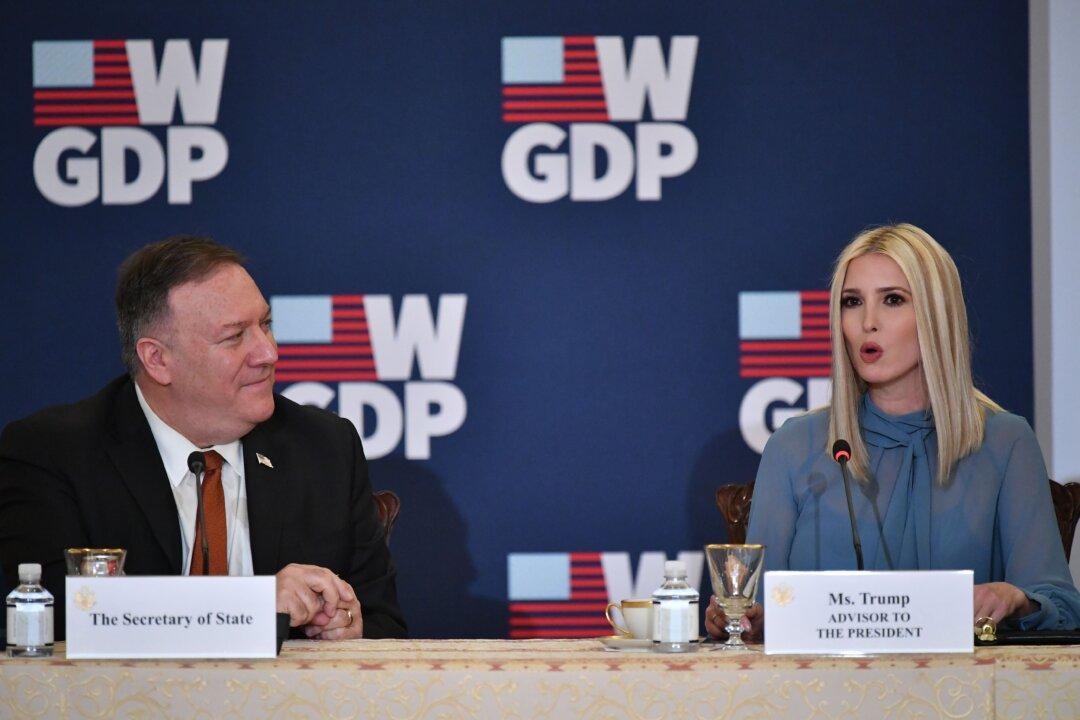WASHINGTON—A White House initiative to promote women’s global empowerment has attracted strong bipartisan support and will soon become a priority of U.S. foreign policy, said President Donald Trump’s daughter and senior adviser Ivanka Trump, who leads the initiative.
“We will be introducing bipartisan legislation in the Senate to promote the empowerment, development, and prosperity of women globally,” Ivanka Trump said at an event to celebrate the one-year anniversary of the Women’s Global Development Prosperity (W-GDP) initiative.





